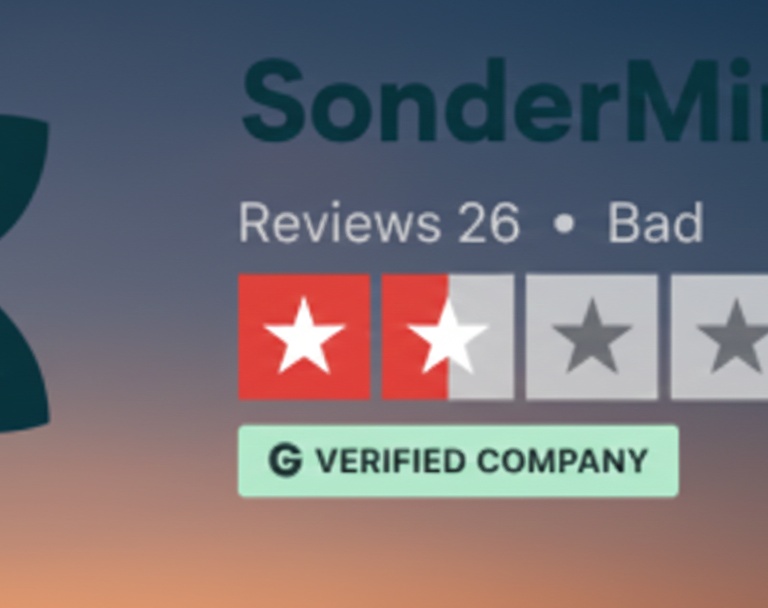Halo (2003) Game Icons Banners
Introduction:
Table of Contents
In the landscape of gaming, amazing titles stand out not only for their gameplay but also for their iconic imagery. One such amusement is “Radiance: Battle Advanced,” delivered in 2001 for the Xbox console. Created via Bungie Studios and distributed through the way of Microsoft Game Studios, Corona reformed the essential individual shooter style and made a permanent imprint on the gaming way of ways of life. Key to its effect had been the game’s notable images and flags, which have come to be meaningful to the establishment and are in any case unmistakable to fans around the world.
Evolution of Icons and Banners:
Halo (2003) Game Icons Banners imagery starts with its protagonist, the Master Chief, a supersoldier clad in powered armor. The visored helmet of the Master Chief has grown to be synonymous with the Halo franchise, right away recognizable even to those who’ve not performed the video video games. This iconic picture ornaments the covers of Halo (2003) Game Icons Banners video games, promotional substances, and merchandise, serving as the face of the franchise.
Another sizeable photograph in Halo (2003) Game Icons Banners iconography is the United States (United Nations Space Command) emblem. Representing humanity’s army pressure in the game’s universe, the us brand features prominently in Halo’s advertising materials, performing on banners, posters, and in-recreation property. Its design, with a stylized eagle and globe, conjures up an experience of authority and energy, reinforcing the game’s militaristic subject matters.
Cultural Impact:
The iconic imagery of Halo (2003) Game Icons Banners has transcended the region of gaming, permeating famous traditions in numerous office work. The Master Chief’s helmet, as an example, has been referenced in films, television indicates, and even song films, cementing its recognition as a cultural icon. The UNSC logo has also placed its way onto products starting from garb to collectible statues, further embedding itself in the public popularity.
Halo (2003) Game Icons Banners and logos have ended up rallying factors for enthusiasts, representing now not just a game but an entire universe wealthy with lore and mythology. Fan organizations have embraced these symbols, incorporating them into fan artwork, cosplay, and online avatars, fostering a revel in camaraderie among fanatics.
Master Chief’s Helmet: The Face of Halo
At the Corner Heart of Halo (2003) Game Icons Banners iconography lies the helmet of the collection’ protagonist, the Master Chief. This specific visored helmet has become emblematic of the franchise, symbolizing electricity, resilience, and the indomitable human spirit. Its smooth, futuristic layout conveys a revel in energy and technological prowess, reflecting the superior military era featured in the sport.
UNSC Emblem: Symbol of Humanity’s Resolve
The United Nations Space Command (UNSC) logo serves as a visual instance of humanity’s navy that could likely be in the Halo universe. Featuring a setting layout with elements reminiscent of real-global military insignia, the USA logo embodies the strength and concord of humanity in the face of extraterrestrial threats. Its presence on banners, flags, and navy paraphernalia inside the sport reinforces the player’s function as a defender of humanity’s hobbies.
Covenant Symbol: The Mark of an Alien Threat
Contrasting with the U.S. Emblem is the picture of the Covenant, Halo (2003) Game Icons Banners number one destructive pressure. Characterized by using manner of its tough design and alien aesthetics, the Covenant photo represents the alliance of alien races united below the banner of spiritual zealotry. Its look on banners and structure within Covenant-managed territories serves as an everyday reminder of the player’s competition and the looming threat posed by way of the usage of this ambitious enemy.
Iconic Weapons and Vehicles: Tools of Warfare
In addition to character and faction symbols, Halo (2003) Game Icons Banners iconography extends to its arsenal of weapons and automobiles. From the iconic Assault Rifle and Magnum pistol to the long-lasting Warthog and Banshee, those guns and cars are greater than simply gear of conflict; they’re symbols of the participant’s agency and resourcefulness in the face of adversity. Their designs, supplying smooth traces and futuristic aesthetics, in addition, make contributions to the visual identification of the Halo (2003) Game Icons Banners franchise.
Cultural Reverberations: From Screens to Streets
Beyond the confines of gaming worldwide, Halo (2003) Game Icons Banners icons and banners have made their mark on famous culture. The Master Chief’s helmet, specifically, has come to be an image of gaming prowess, decorating products, cosplay, and even company branding. The UNSC brand and Covenant image have additionally found their way into numerous sorts of media, resonating with lovers and non-gamers alike as symbols of adventure, conflict, and heroism.
Guardians of Halo: Cortana’s Iconic Blue Hue
While a great deal of hobby is rightfully placed at the armored determine of the Master Chief, the Halo (2003) Game Icons Banners imagery extends to every different vital character: Cortana. As a synthetic intelligence critical to the sport’s narrative, Cortana’s distinctive blue hue has become an iconic element. Representing intelligence, steering, and in some instances, vulnerability, Cortana’s presence is felt no longer most effective in the sport however moreover in promotional substances and products, in which her photo adorns posters, banners, and digital displays.
Forging Legends: The Mythical Halo (2003) Game Icons Banners Ring
At the heart of Halo’s narrative lies the eponymous Halo (2003) Game Icons Banners ring—a large, ring-long-established form with good-sized power and significance. Serving as a placing and a plot tool, the Halo ring has emerged as an iconic image of the franchise. Its implementing silhouette features prominently in promotional artwork and banners, evoking an experience of mystery, marvel, and danger. The Halo ring symbolizes humanity’s quest for expertise and power, while additionally serving as a reminder of the perils that lie beyond the stars.
Faction Insignias: Diversity Amidst Conflict
In addition to the logos of the United States and the Covenant, the Halo (2003) Game Icons Banners universe is populated by the use of severa factions, every with its very own brilliant symbols and banners. From the rise-up forces of the Insurrection to the enigmatic Forerunners, those faction insignias add depth and complexity to the sport globally. Whether displayed proudly on banners or hidden within the game’s environments, those symbols function as visual cues, hinting at alliances, rivalries, and untold memories waiting to be determined.
Environmental Icons: Landmarks of the Halo (2003) Game Icons Banners Universe
Beyond person and faction symbols, Halo’s iconography extends to its environments, in which landmarks and structures emerge as visible icons of their property. From the towering spires of the Pillar of Autumn to the mysterious Forerunner installations scattered at some point of the panorama, those environmental icons are characteristic waypoints, goals, and backdrops to the participant’s journey. Whether exploring the lush jungles of Installation 04 or traversing the desolate landscapes of Reach, gamers are constantly surrounded by visually placed landmarks that contribute to the wealthy tapestry of the Halo (2003) Game Icons Banners universe.
Conclusion:
In the end, the Halo (2003) Game Icons Banners transcend mere visual factors, serving as symbols of the franchise’s rich mythology, immersive gameplay, and enduring cultural impact. From the iconic visored helmet of the Master Chief to the trademarks of the us and Covenant, those symbols have captivated audiences globally, leaving an indelible mark on gaming history. As Halo continues to comply and enlarge, its iconic imagery stays a cornerstone of its identity, connecting enthusiasts at some point of generations and mediums.
Frequently Asked Questions (FAQs) about the Halo (2003) Game Icons Banners:
What is the importance of the Master Chief’s helmet in the Halo franchise?
The Master Chief’s helmet is iconic within the Halo (2003) Game Icons Banners universe, symbolizing electricity, resilience, and humanity’s safety inside the path of alien threats. It serves as the face of the franchise, representing the participant’s feature as a supersoldier preventing to shield of humanity.
What do the United States and Covenant symbols represent?
The UNSC (United Nations Space Command) picture represents humanity’s army force and cohesion in the face of extraterrestrial threats. Conversely, the Covenant picture indicates the alliance of alien races united below a religious hierarchy, serving as the number one adverse strain in the Halo universe.
How do environmental icons contribute to the Halo experience?
Environmental icons, collectively with the Halo ring and Forerunner systems, function as landmarks and goals within the game world. They evoke an experience of wonder, mystery, and hazard, adding intensity and immersion to the participant’s journey.
Why are faction insignias important in Halo?
Faction insignias, such as those of the United States, Covenant, and diverse specific factions, add complexity to the sport internationally using hinting at alliances, rivalries, and untold tales. They enhance the narrative and contribute to the experience of immersion inside the Halo universe.
How has Halo’s iconic imagery prompted famous subculture?
Halo’s iconic imagery, together with the Master Chief’s helmet and American brand, has transcended gaming to grow into be cultural touchstone. These symbols are recognized globally and have been referenced in films, TV shows, song films, and specific styles of media, contributing to Halo’s popularity as a cultural phenomenon.
Are there any hidden meanings at the back of Halo’s icons and banners?
While a few symbols in Halo deliver overt meanings, others may additionally include deeper layers of importance open to interpretation using gamers. The franchise’s rich lore and mythology offer sufficient possibility for fans to find out hidden meanings and speculate about the broader implications of its iconic imagery.
How has the format of Master Chief’s helmet advanced at some point in the Halo collection?
The design of Master Chief’s helmet has long gone through subtle adjustments over the route of the Halo series, reflecting enhancements in technology and layout aesthetics. Fans regularly communicate and analyze those adjustments, debating their significance and impact on the individual’s portrayal.
Are there any Easter eggs or hidden symbols inside Halo’s banners and icons?
Halo video games are seen for their complicated diploma layout and interest in elements, main fanatics to look for Easter eggs, and hidden symbols inside the sport’s environments. While a few can be deliberate nods to the franchise’s lore or developers’ internal jokes, others can be open to interpretation, sparking hypotheses and speaking among gamers.
What function do banners play in the gameplay of Halo?
Banners in Halo serve a couple of features, including offering context for the game’s narrative, guiding gamers through stages, and organizing the identity of factions and environments. They can also be characteristic waypoints, indicating objectives or factors of interest for game enthusiasts to discover.
How do Halo’s icons and banners contribute to the game’s advertising and merchandising?
Halo’s iconic imagery is number one in its advertising marketing and vending efforts, appearing on promotional materials, products, and authorized merchandise. These symbols serve to attract and interact with fans, reinforcing their connection to the franchise and extending its reach beyond the gaming network.


